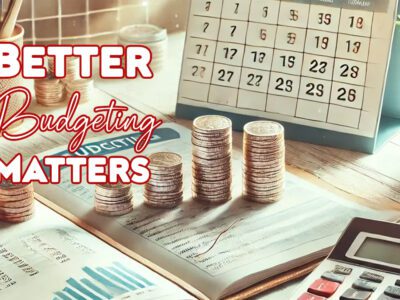
Money Management
Important Lessons
- A sound financial mindset requires a basic understanding of money management.
- Set spending and saving priorities for both your immediate and long-term objectives.
When you are paid, what do you do first? Do you monitor your monthly financial expenditures?
If we don’t know how to manage our finances, even a great job and a dream salary might not be enough. How well we handle our finances is more important than how much money we earn.
Prioritise saving first.
Increasing your savings can be achieved by saving first and spending later. It is an agreement to set aside a certain sum each time you are paid. To avoid being tempted to spend it, you should maintain this money in a different bank account.
Prioritise saving above spending
The two spending patterns differ in the following ways:
Spending Trends When the salary is received, it goes to:
- Savings first
- Must-pay bills
- Lifestyle expenses
Putting money aside first guarantees that you will set aside some of your monthly income. A minimum of 20% of your monthly income should ideally be saved. Use a budget to help you manage your spending for the remainder of your money.
A spend-first-save-later cycle, on the other hand, might indicate that there is nothing left over for savings.
How Do You Spend?
Using a budgeting tool is an easy method to keep tabs on your expenditures. Alternatively, you may record what you bought, when you bought it, and how much you paid for it.
Examine your spending honestly before you begin tracking your expenditures.
Wants versus needs
The necessities of life are needs. These are necessities, such as food and utilities.
What you want is what you want. They may be non-essential products, like a new pair of shoes to add to your collection, or more costly (but not necessarily superior) alternatives for your needs.
As a guideline, always prioritise spending on your needs over your wants: What you want can wait until you have met your goals!
For example, think about something you bought recently:
- Do you know how much you spent on it?
- Was it a need or a want? Was it an essential item or was it bought on impulse?
- Do you usually buy at first sight? Or do you compare prices to see if you’re getting the best deal?
You should take steps to curb your spending if it is keeping you from achieving your goals.
Setting A Budget
A budget is an effective way to save and spend money. It can assist you in responsibly managing your income, savings, expenses, debt, and other obligations. Another excellent method to quickly see where your money is coming from and leaving is to create a budget.
Making a budget will assist you in:
- Living within your means and covering your essential living costs
- Keep tabs on your expenditures so you can set aside funds for both your immediate and long-term objectives.
- Manage your finances to prevent them from controlling you.
Make sure your current budget is still functional by periodically reviewing it.
How To Prepare A Budget
Here are tips to get you started:
- Figure out how much money you make each month. Add reliable sources of income, such as a base wage or rental income. Don’t add any funds (such as commissions and bonuses) that you are unsure you will receive.
- Set aside a certain sum of money each month. First, save: Try to set aside 20% or more of your monthly take-home salary. Put away three to six times your regular spending for emergencies. Save money for your other life goals after you have accumulated emergency funds.
- Make a list of every monthly spending. Taxes, bills (including any credit facility, such as credit card balances or loan repayments), transportation, utilities, shopping, food, and essentials should all be included. Include their stipend or financial assistance if you have elderly parents and children who are dependent on you. Include sums allocated for savings, investments, and insurance premiums.
- Establish a budget and adhere to it strictly. We can budget for expenses, but we don’t have to spend them if we don’t need to.
- To determine whether you are on track, periodically review your budget. If you receive a wage increase or decrease, for instance, or if your family grows, you should make adjustments to your budget.
If You Are Spending Too Much
Look for ways to reduce your expenses. Here are some ideas:
- Change to house brands when shopping for food or essential household items
- Opt for the bus or train instead of taxis
- Stop buying items you don’t need
- Have more home-cooked meals instead of eating out
- Review monthly subscriptions that you may no longer need
What's your reaction?
Excited
0
Happy
0
In Love
0
Not Sure
0
Silly
0















